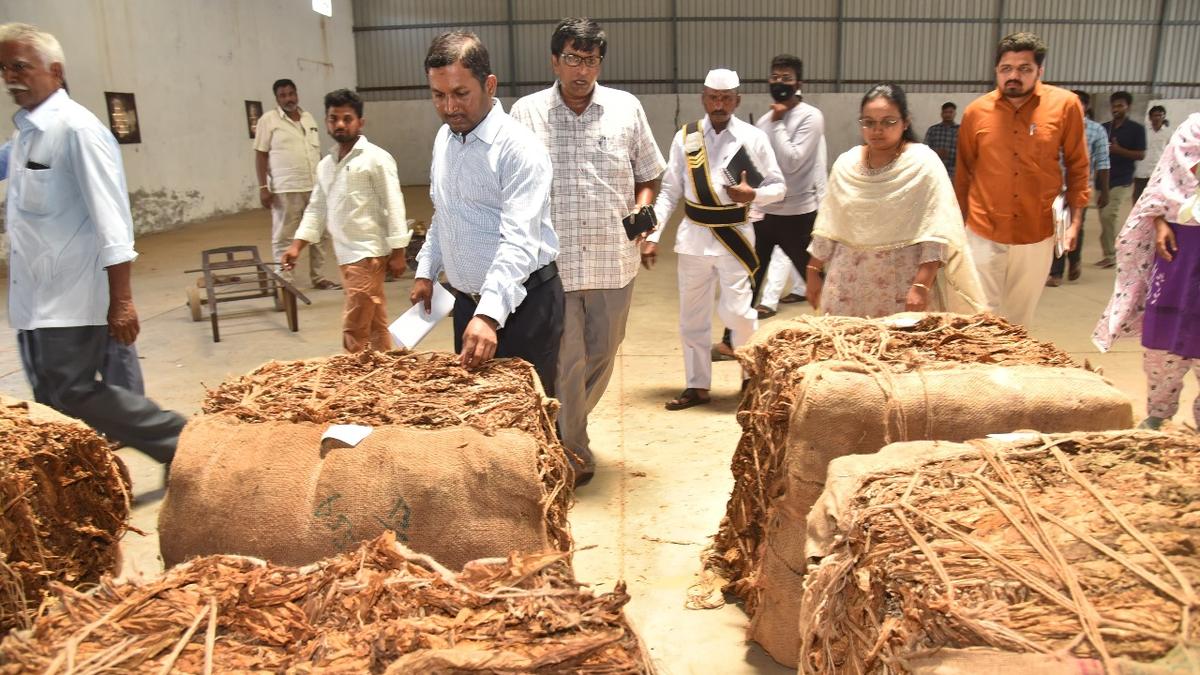Now Reading: Prakasam Farmers Supply 360 Tonnes of Burley Tobacco
-
01
Prakasam Farmers Supply 360 Tonnes of Burley Tobacco
Prakasam Farmers Supply 360 Tonnes of Burley Tobacco

Quick Summary
- Procurement Details: A.P. MARKFED procured 360 tonnes of black burley tobacco worth ₹3 crore from 110 farmers in Prakasam district over the last 15 days.
- Eligibility for Sales: Farmers registered via the CM App where eligible to sell their produce at government-designated procurement centres in Garlapadu village of Maddipadu mandal.
- Collector’s Inspection: In-charge Collector R. Gopala Krishna inspected stocks at the tobacco procurement center and assured farmers that procurement would continue until the end of September.
- Government Measures: The State government is handling purchases to ensure no farmer incurs losses and has set guidelines for grading tobacco bales during procurement.
- Operational Details reviewed: The Collector reviewed storage, purchasing schedules, payment systems, and addressed operational concerns related to tobacco handling at the procurement centre.
- Participants in Event: Ongole Revenue Divisional Officer Lakshmi Prasanna, MARKFED DM Hari Krishna, and Maddipadu Tahsildar Adi Lakshmi attended.
Indian Opinion Analysis
The ongoing efforts by A.P. MARKFED and state officials demonstrate a structured approach toward supporting tobacco farmers through obvious government-led procurement processes. By requiring registration on the CM App and setting protocols for grading bales, accountability measures are prioritized to safeguard farmer interests. Extending operations until September ensures timely compensation while avoiding distress sales during peak harvest periods.
This initiative reflects a broader trend for state governments engaging cooperatives like MARKFED to stabilize agricultural markets – especially crucial amid price volatility or supply chain challenges. Ensuring seamless payments as highlighted by the inspection adds credibility to government assurances about preventing farmer losses.
Such interventions propose a scalable model for other crop sectors requiring direct-state participation in distress management while strengthening trust with farming communities.
For more details, visit The Hindu’s article.























